by Jonathan S. Tobin
If Iran can make a bomb in two weeks, then the game is over. It took 20 years of bad decisions to make this a reality.
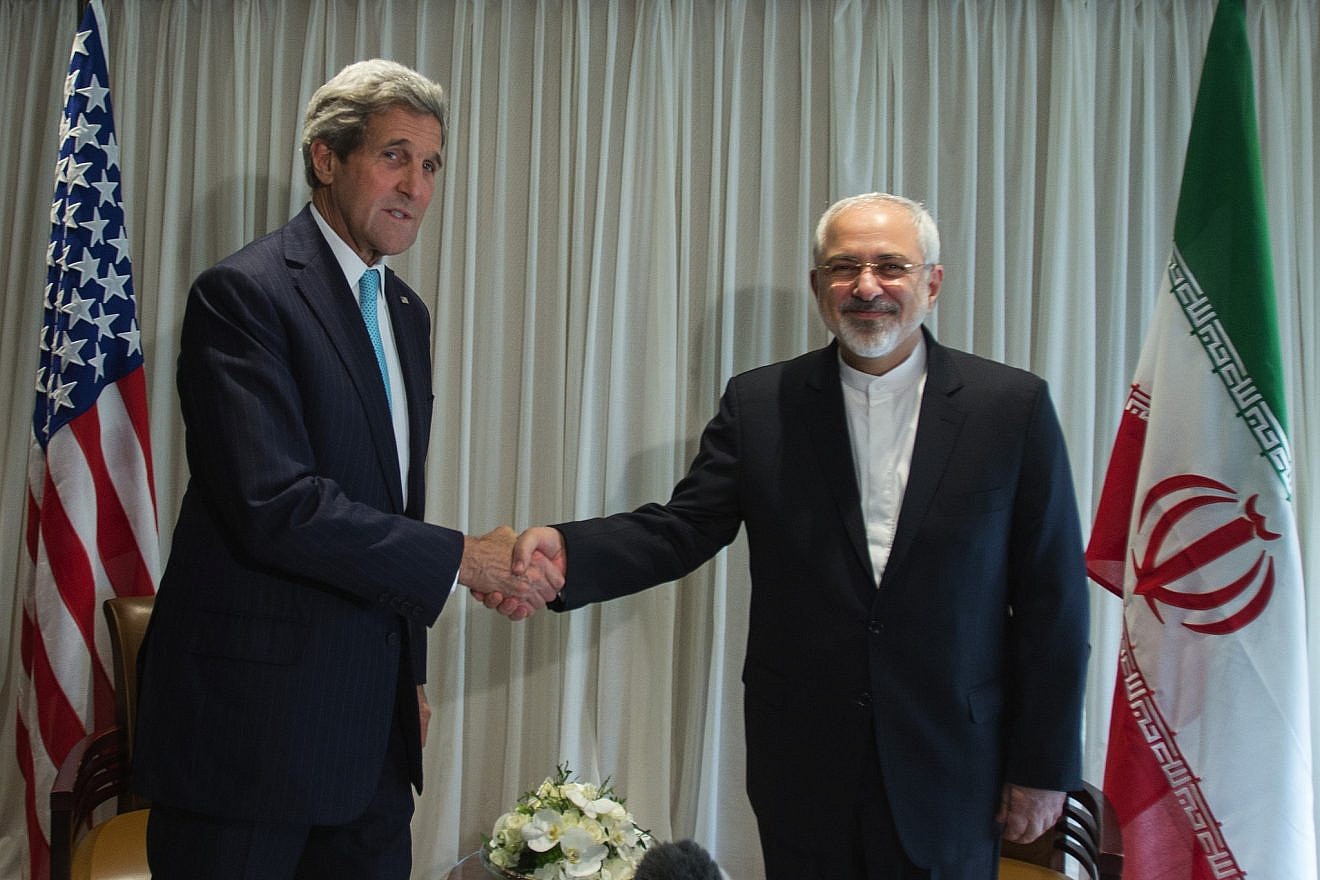 |
U.S. Secretary of State John Kerry meets with
Iranian Foreign Minister Javad Zarif in Geneva, Switzerland, in 2015.
Credit: U.S. Mission/Eric Bridiers. |
Iran has been in the news lately for a number of reasons. One is the Biden administration’s latest instance of appeasement of the Islamist regime in which it paid $6 billion in frozen funds to it as a ransom to gain the release of five U.S. citizens. Another involves the revelations published last week in Semafor in which the world learned about Iran’s influence operations in the United States and the way Biden administration officials like the currently suspended Robert Malley enabled them.
As important as those stories are, they pale in significance beside one that has yet to be even mentioned in The New York Times or The Washington Post. It involves the U.S. Department of Defense’s 2023 Strategy for Countering Weapons of Mass Destruction report that was, in a typically deceptive strategy known as the Friday afternoon news dump, published late last week. In an echo of past American intelligence failures, it assessed that Iran is “not pursuing a nuclear weapons program at this time.” However, it added the following ominous statement, noting that Tehran now “has the capacity to produce enough fissile material for a nuclear device in less than two weeks.”
In other words, the game is over. After a decade and a half of American and Israeli hand-wringing about Iran’s quest for nuclear weapons—and knowledge about their program is necessarily incomplete because it has barred inspectors from the International Atomic Energy Agency from carrying out their already inadequate efforts to monitor what they are doing—Washington is acknowledging that Tehran has become a threshold nuclear power.
In theory, fear of American and/or Israeli military action—however unlikely the former might be—might permanently deter Iran from moving forward to put together a nuclear weapon in the 12 days the DOD’s report says that they can do it. Alternatively, once that process is set in motion, it is theoretically possible that military threats or attacks could prevent the Iranian bomb from becoming a reality.
Let’s leave aside that sort of unrealistic fantasizing about a resolute Western response to Iran or Israel finally acting on its statements that it would never allow Iran to possess a nuclear weapon. If the mullahs and their terrorist shock troops of the Islamic Revolutionary Guard Corps are that close to a nuke, there’s very little chance that they will be stopped from assembling one if they wish to do so. There is equally just as little chance that the CIA or Israel’s even more formidable Mossad will acquire this knowledge in time for someone to do something about it.
The Israelis, particularly Prime Minister Benjamin Netanyahu and the various defense and intelligence agencies there, have repeatedly promised that they would act to stop Tehran from getting to this point. By contrast, President Joe Biden has merely promised that Iran won’t get a bomb on his watch—a pledge that he can be said to have kept, absent proof that the Iranians have not actually put together a nuclear device.
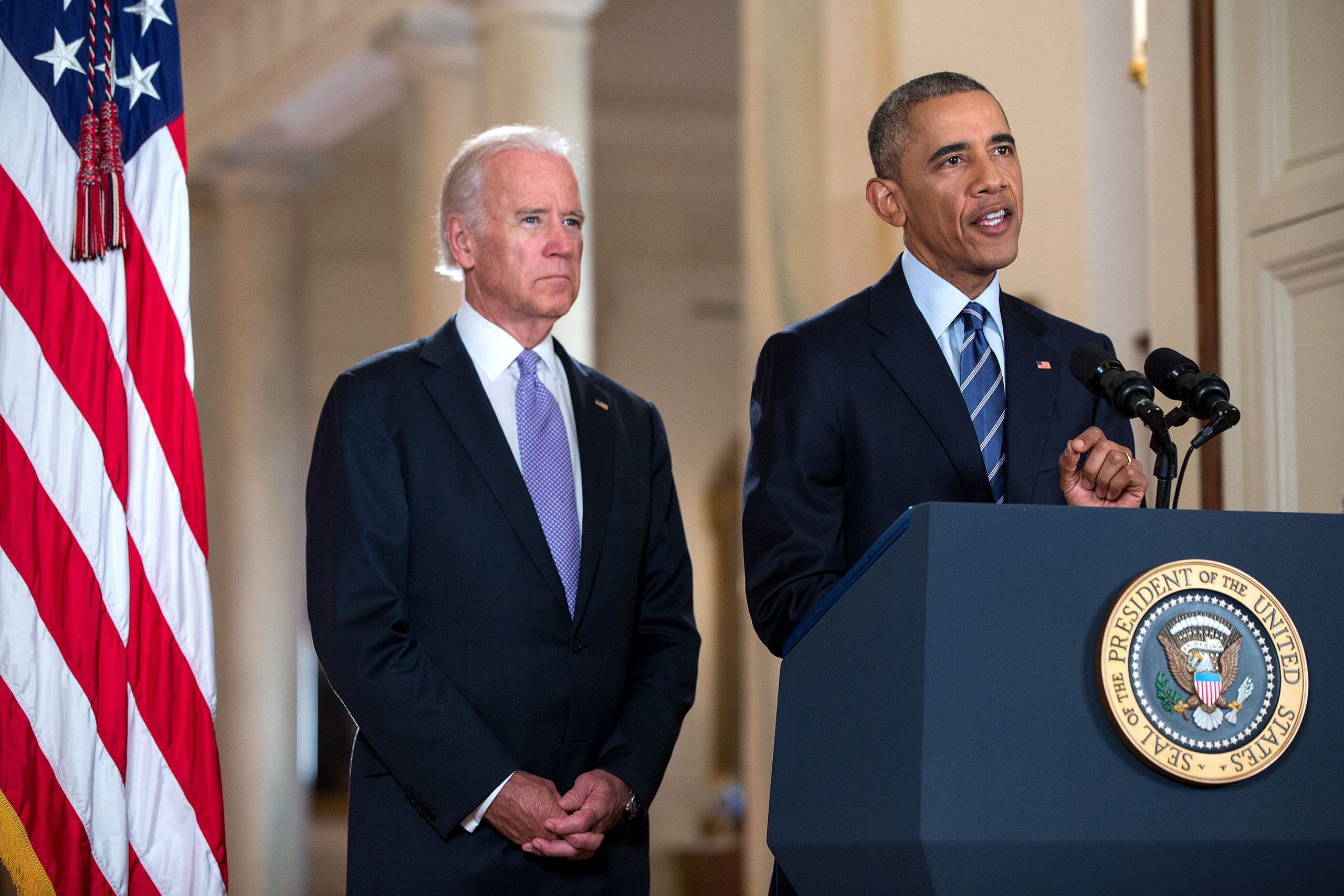
The triumph of containment
This means that whether anyone is prepared to formally acknowledge this new reality or not, the only viable option for dealing with a nuclear Iran is the one that many so-called foreign policy realists have been advocating for nearly 20 years: containment.
Supporters of containment, like the American Enterprise Institute’s Kenneth Pollack, who wrote a 2013 book on the subject, have long asserted that short of launching a war that Israel may not be capable of fighting and the United States had no interest in after its bad experiences in Afghanistan and Iraq, the only thing to do is to treat a nuclear Iran the way the West has other nuclear powers, including Russia and China.
In this scenario, instead of trying to roll back the clock to the point where their program could be stopped, measures are put into place to deter Iran from ever using it. Those who have preferred containment to pre-emptive actions have also proposed pressuring or somehow tempting Tehran to change with bribes that would entice it to become a more responsible player on the international stage rather than a rogue terrorist state.
Though both the Obama administration spoke about stopping a nuclear Iran, the 2015 Joint Comprehensive Plan of Action (JCPOA) that was its signature foreign-policy “achievement” was really about containment and not prevention because once it expired at the end of the 2020s, an Iranian bomb was a given.
Containment has always been predicated on the idea that while Iran’s leaders were Islamists who sought Israel’s extinction and hegemony over the Middle East, they were rational actors rather than fanatics who were prepared to risk their own regime’s survival, as well as the devastation of their country, by using a nuclear weapon. There are reasons to doubt the wisdom of that assurance, but such debates are now officially moot. Barring a decision for a strike against Iran by Netanyahu or a reckless Iranian announcement that will remove the ambiguity about their nuclear capability that the 12-day breakout period minimally preserves, containment is what Israel or America is left with. But the problem with this essentially defeatist strategy is that even if Iran never uses its nuclear weapons, the fact that they have them makes them far more powerful and potentially gives impunity to the world’s leading state sponsor of terrorism.
The debate about how best to pursue containment is an argument for another day. Right now, it’s appropriate to ask—after all the promises, speeches, threats and analyses about how Iran could be prevented from becoming a threshold nuclear power—how this happened.
Since many of the same people who brought the world to this point are still in power in Washington, it’s hardly irrelevant to discuss how and why they failed. Some people “lost” Iran; identifying them and demanding accountability for their abysmal failure is appropriate.
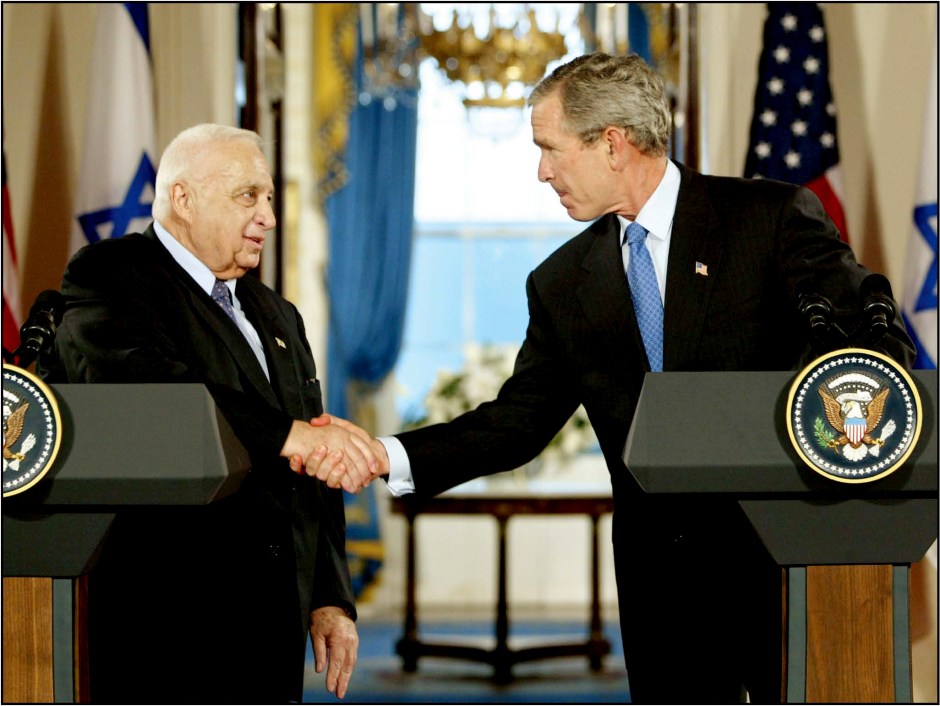
George W. Bush’s and Iraq
Any discussion of the rise of Iran in the 21st century must begin with the George W. Bush administration.
One of the unintended consequences of the Iraq War was that it empowered Iran to a degree that would have been difficult to imagine if the barbarous Saddam Hussein regime in Iraq had been left in place. The war’s remaining apologists can rightly assert that Saddam was a bloody tyrant, as well as a state sponsor of terrorism. Eliminating him was a just act and removed Iraq as a dangerous military power. But Saddam was also Iran’s sworn enemy, and as long as he was in charge in Baghdad, Iran had to be primarily concerned with the threat of a renewal of the war between the two countries. The American military victory in 2003 changed that equation, as well as gave Tehran the ability to have outsized influence in, if not control of, Iraq via a Shia population that had long been repressed by Saddam’s Ba’ath Party.
While Iran’s nuclear program predated the Iraq War and would have continued anyway, the war was an essential step towards the Islamic Republic becoming a regional power that could threaten the Gulf States and Israel, as well as keep its ally Bashar Assad in power in Syria. The disaster in Iraq also ensured that the American people would not tolerate anything that might mire them in a third war in the Middle East—something Iran knows. Moreover, Bush’s own disinterest in taking action against Iran at a point early on in its progress essentially ensured that American military power—the only force that we can be sure could take out Iran’s nuclear program—was never going to be deployed against this nuclear threat.
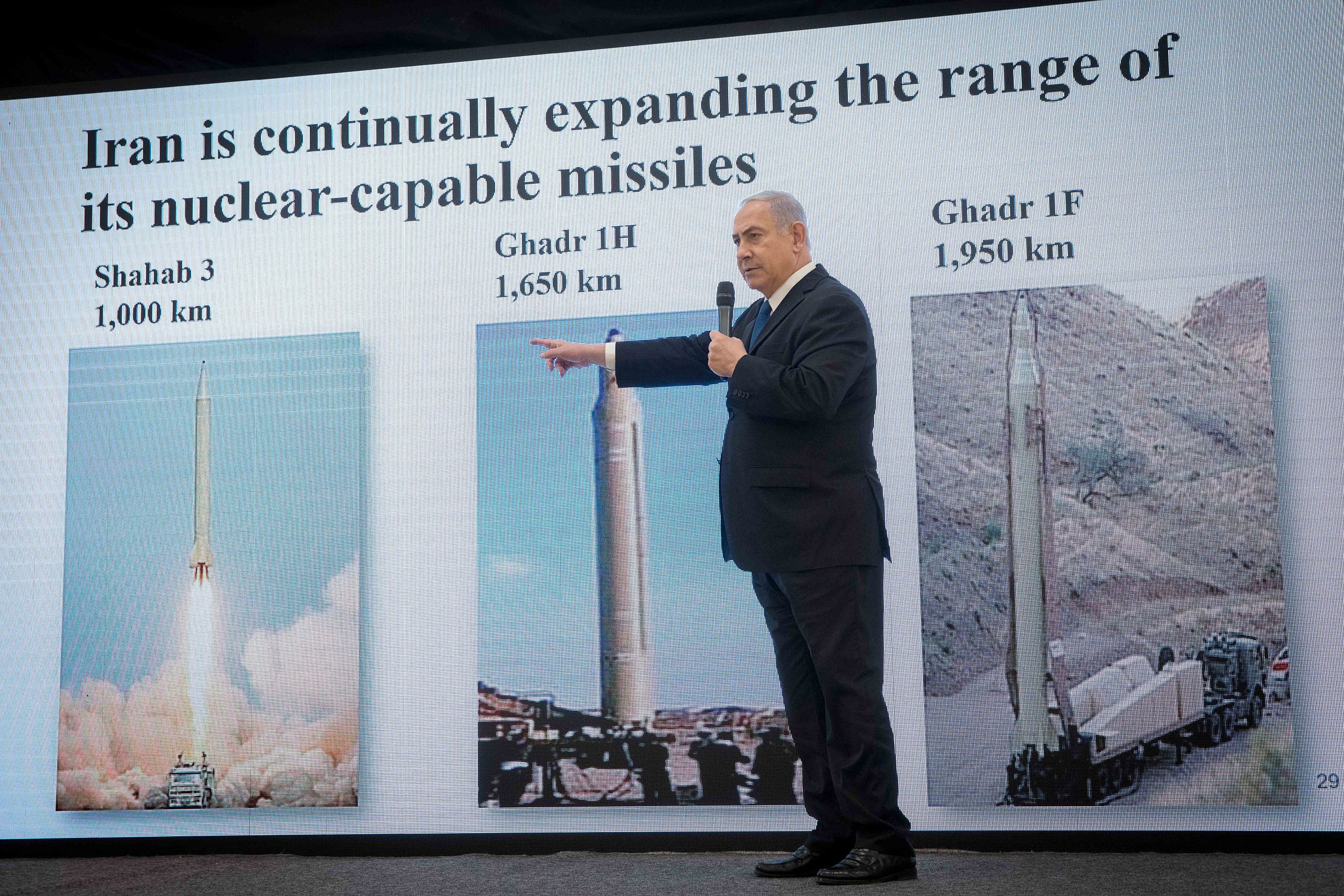
Netanyahu’s empty threats
Next, we must also acknowledge that Netanyahu must accept some responsibility for the triumph of containment.
That may seem counterintuitive since he has been a fervent advocate of tough action, including sanctions and military threats, against Iran, this entire time. Moreover, his eloquent and prescient advocacy for stopping Iran has helped mobilize opposition to the appeasement of Iran in both the United States and among the Arab states that now look to Jerusalem as an ally against the threat from Tehran.
It’s equally true that the always-cautious Netanyahu passed on a strike against Iran’s nuclear facilities back in 2012 when he was drawing red lines on cartoon bombs at the U.N. podium.
Israel did undertake covert actions to delay Iran’s nuclear program, including the joint operation with the United States in which they introduced the Stuxnet virus into their system. But these were merely temporary measures. Israel’s undercover work inside Iran (including its spiriting away of a warehouse full of records proving that Tehran had lied to the world about its actions and intentions) was amazing, but it was never going to be a substitute for taking out those facilities.
In his memoir, Bibi, he blames opposition from the leaders of the Israel Defense Forces and the intelligence agencies for the failure to strike Iran. He’s right that Israel’s prime minister isn’t the commander-in-chief of the armed forces like an American president. But had he made it his sole priority, does anyone doubt that he could have enforced his will on the defense establishment? He did not, and there were a lot of good reasons for that since Israel acting alone might not have permanently ended the Iranian threat and would have complicated its alliance with the United States, as well as endangered those entrusted with the mission. Still, the fact remains that like Bush, he didn’t risk everything in order to stop Iran at a point where it was much farther away from nuclear capability. And that’s one more reason why Iran succeeded.
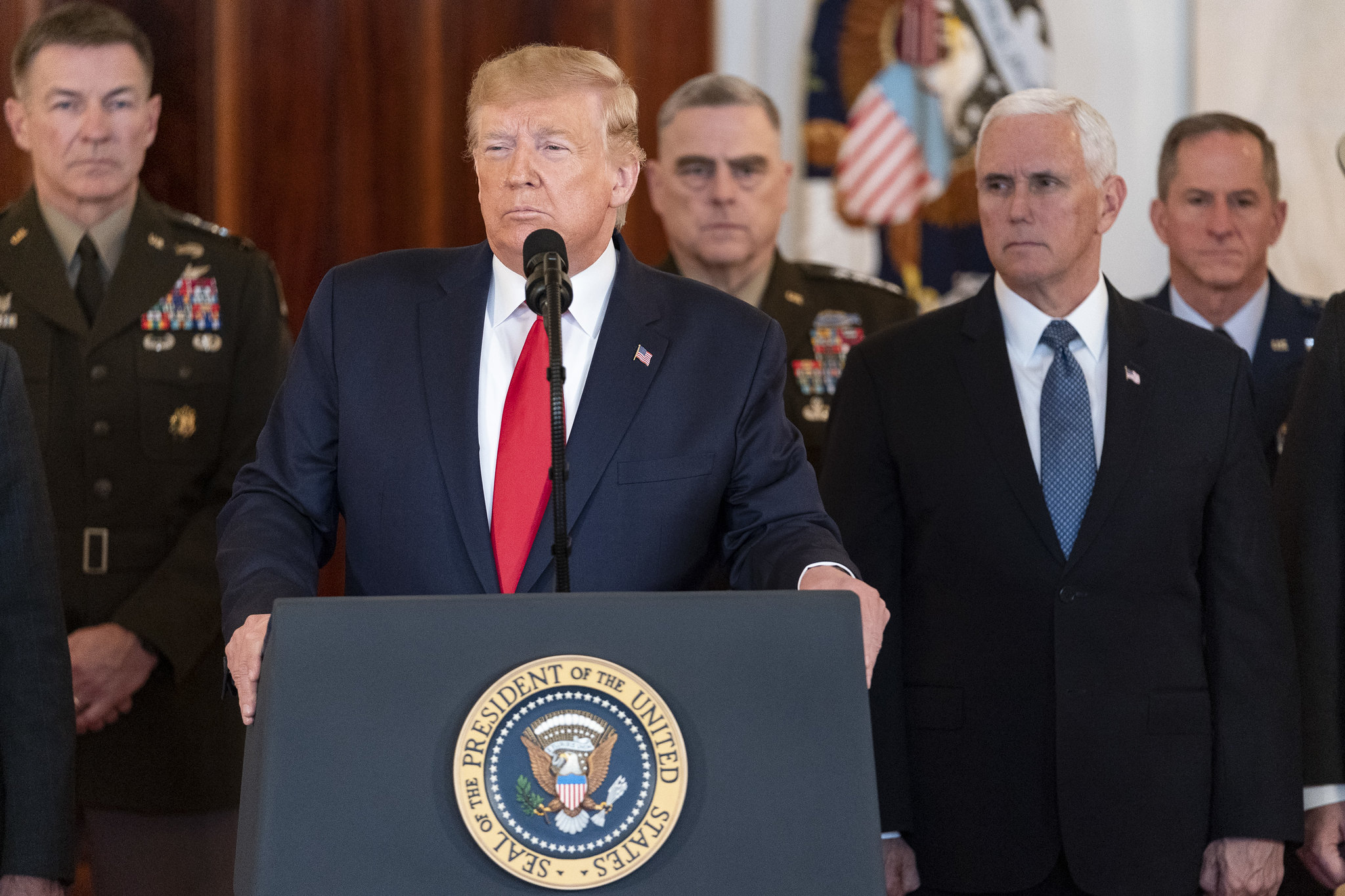
Kerry’s Iran collusion and Trump’s failure
Another possible scapegoat is former President Donald Trump.
Obama apologists do blame Trump for withdrawing from the JCPOA and attempting to pressure Iran to abandon its nuclear quest with sanctions and threats. They say his decision torpedoed an imperfect but still working plan to stop Iran without a viable alternative in place. That’s mistaken because the Obama deal was a failure from the start and was going to have to be replaced sooner or later.
In the end, Trump failed during his four years in office to achieve a better Iran nuclear deal or to stop their efforts altogether. But the primary blame for that failure was not his. Had Iran believed that it had no alternative but to return to the negotiating table or to face complete isolation and economic ruin, Trump’s plan would, at the very least, have had a chance to succeed.
They didn’t believe that. The reason was that they were betting on Trump being defeated in 2020 and being replaced with a Democrat who would return to Obama’s strategy of appeasement/containment. Had Biden acknowledged while running for president that the JCPOA was a sham and made clear that he would stick with pressure to get a better deal that would end the threat rather than merely kick the can down the road, Iran might conceivably have been left with no choice but to abandon its nuclear ambitions. Instead, he promised more appeasement.
Even worse than that, former Secretary of State John Kerry met repeatedly with the Iranians in 2018 and advised them to ignore Trump’s moves and “maximum pressure” campaign. He assured them that if they merely sat tight and waited for 2021, they could have everything they wanted. They took his advice and that, as much as anything, is why Iran is now only 12 days away from a bomb.
Kerry’s collusion with Iran wasn’t merely ill-advised; his actions advising an enemy of the United States to thwart government policy was arguably one of the most disgraceful actions undertaken by an American in the history of the republic. That he got away with those actions, which are close to treasonous, and subsequently received the reward of another high office as Biden’s climate czar only makes it worse. While Americans spent three years being lied to by the media and the Democrats about Trump’s supposed collusion with Russia, it was Kerry’s open collusion with Iran that should have generated outrage rather than shrugs and yawns. The “echo chamber” that Obama staffers like Ben Rhodes created in the media ensured that Iranian appeasement stayed on track even after Trump won in 2016.
Obama’s bad deal
Kerry doesn’t stand alone as the man who is most responsible for ensuring that Iran became a threshold nuclear power. Former President Barack Obama came into office determined to realign American foreign policy away from traditional allies like Israel and Saudi Arabia, and his Iran appeasement did just that. It did have the unintended consequence of bringing Israel together with the Arab states in a way that made the Abraham Accords possible. But in 2013, when Obama and Kerry began their initial secret negotiations with Iran, the international community had—thanks in part to Netanyahu’s warnings—endorsed tough sanctions. With American leadership, that could have brought Iran to its knees. Instead, the United States wound up being the ones begging Iran for a deal and abandoning sanctions.
It took 20 years of bad decisions to bring the world to the point where everyone must acknowledge that Iran has succeeded, and Israel and the West failed.
But Obama, Kerry and their foreign-policy team that embraced Iranian appeasement must bear the primary guilt for this appalling and dangerous situation. Honest histories of this debacle—assuming a future in which anti-Trump and anti-Netanyahu partisanship is no longer assumed from the academy and supposedly reputable historians—will judge them harshly. The consequences that will ensue from an Iran terrorist state that is only 12 days from a nuclear weapon are terrible, even unimaginable. In the years to follow, we will learn just how much their feckless policies, lies and collusion with Islamist murderers will cost the peoples of the Middle East and the rest of the world in blood and agony.
Jonathan S. Tobin is editor-in-chief of JNS (Jewish News Syndicate). Follow him @jonathans_tobin.
Source: https://www.jns.org/who-lost-the-battle-to-stop-irans-nuclear-quest/?_se=YW5uZS1tYXJpZS5mYXJvdXpAbGFwb3N0ZS5uZXQ%3D
No comments:
Post a Comment